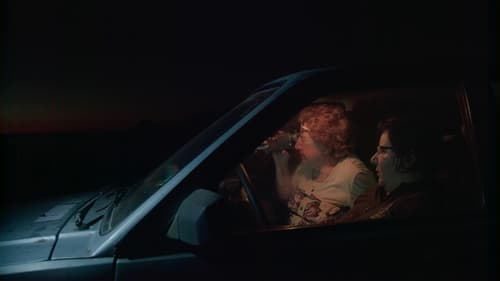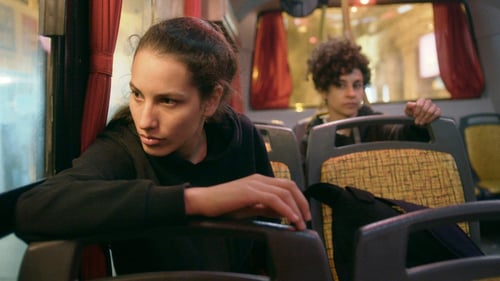
Editor
Flor thinks she's in vacation with her father, when in reality Pedro is kidnapping her due to the fear of not seeing her again. When Flor discovers the truth, she escapes. Érica, her mother, looks for her desperately.

Editor

Editor
A sunny morning in Buenos Aires. All seems quiet, but then an odd race begins: a variety of people are after a backpack. A little army of seekers surprises us at every corner. Suddenly, a lonely bureaucrat (Mapache) is involved in this adventure, and new, mysterious and unknown people start to populate his life, all running around the popular Argentinian city to obtain the backpack which seems to be crucial to his own fate, according to the words of his new accomplice, magician and tarot reader Luminitsia.

Editor
It is no coincidence that the second feature by Argentinian Melisa Liebenthal begins with a quote from “Duino Elegies” by Rilke, who was concerned with existential angst. And, more prosaically, Marina, the film’s young protagonist, is faced with similar anxiety. In fact, her problem is her face. One morning, she discovers her face has changed, and she can no longer recognise herself. Not even her mother can, who bumps into her on the street and says hello to her like she would to any stranger (deadpan, surreal humor is part of the film’s recipe). Marina is thus forced to confront her identity: who is she? Is she determined by her parent’s DNA or by her ID card? Can she be identified by a family portrait, by biometrics or the love of those around her, including her Colombian boyfriend? Is she prettier now?

Editor
A group of friends, the windows of buildings at night, Chacarita's cemetery, a road trip and tree tops are mixed together with sleepless city lights.

Editor
Mother and daughter Silvia et Andrea are also ufologists. They run a UFO research group together and stand guard, chasing the lights that appear mysteriously over the Paraná river. Joyously adopting the genre of (science-)fiction, Maximiliano Schonfeld uses humour and affection to paint the poetic portrait of a community.

Editor
Julia returns to her hometown and the neighbourhood she left years ago after being swindled. She’s here to sign a permit to authorize her daughter to move in with her father, but more than anything, she’s come back to recover money that she left there, and which would solve a lot of her problems. Returning to her past is nothing like she expected it to be.

Editor

Editor
아르헨티나 북부 코리엔테스 지방, 라스밀(Las Mil)이라는 작은 마을을 배경으로 펼쳐지는 우정, 사랑, 힘의 관계를 보여준다. 감독은 영화 배경이 되는 지역의 역사나 정치적 상황을 전면에 드러내거나 일절 설명하지 않는다. 하지만 부재를 통해 실제 부재했던 힘을 묘사하는 방식으로, 영화 속에 어떤 공적인 힘도 등장하지 않게 함으로써 실제 정치권력이 수년간 주민들을 방치한 결과를 약물과 빈곤을 통해 드러낸다. 시나리오는 지방 생활의 관습을 보여주는 많은 이야기 속에서 이리스와 레나타 사이의 사랑 이야기를 탄생시킨다.

Editor
Aquí y allá is an essay film that studies what being at home means. The filmmaker uses photographs, maps and Google Earth to connect places around the globe; not just from her own past, but also from the complex migratory history of her family that stretches back to Hitler-era Germany and Mao's China. Reality and the virtual prove equally confusing: however much you zoom in, you never get closer to home.

Editor
“Veranada” (summer pasture) opens a small window into the fascinating way of life of the Malargüe herders. The film moves through the eyes of Don Arturo, a gaucho who travels on his horse around the Argentina Andes Mountains in search of greener grasslands to feed his goats and sheep. In this remote community, herders depend on the one necessary resource to survive: water nourishes the plants in the meadows which feed the herds. This story is about Don Arturo’s tenacious yet hopeful will to survive amidst a world affected by climate change, severe drought.

Editor








